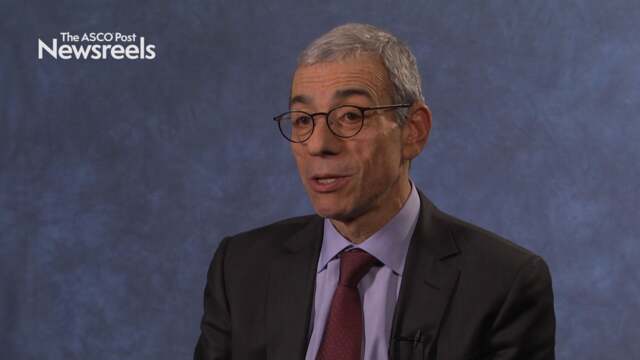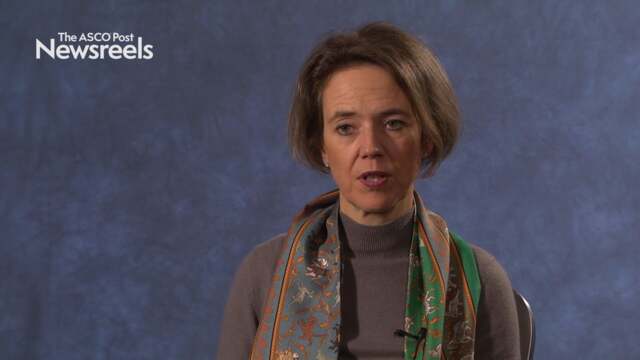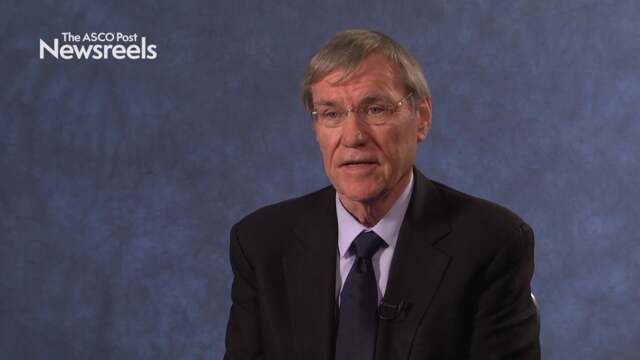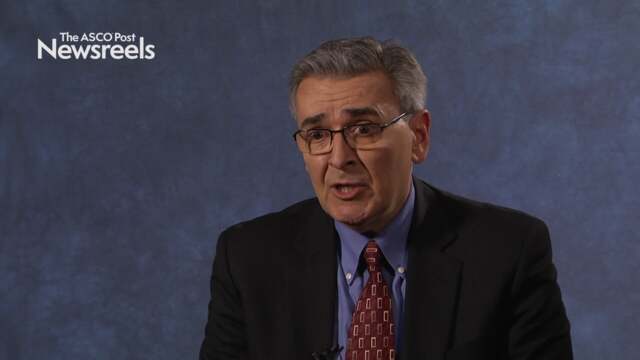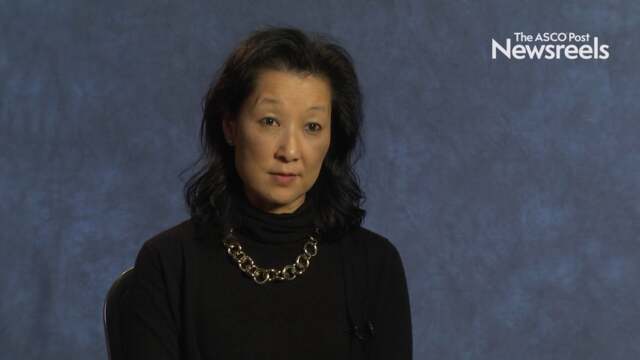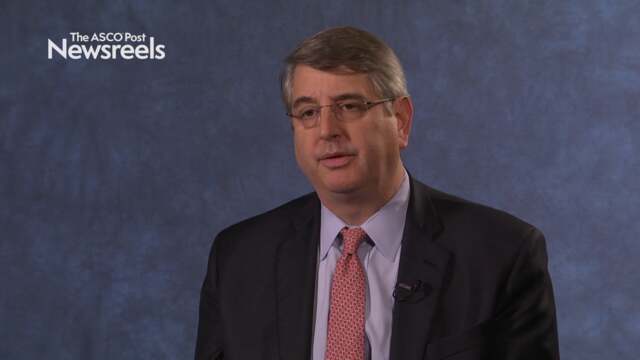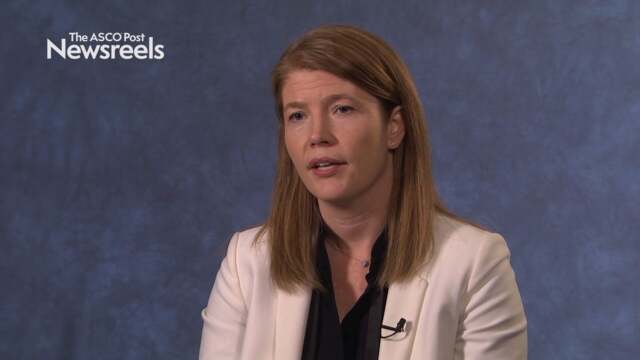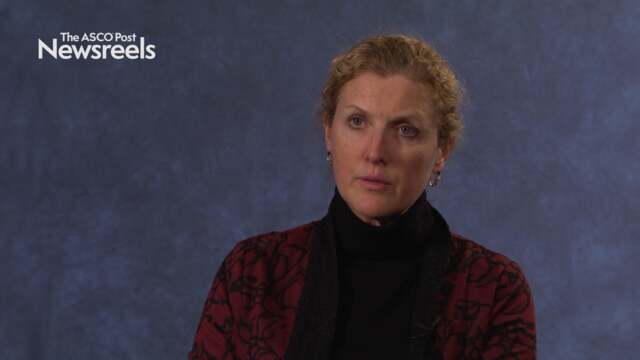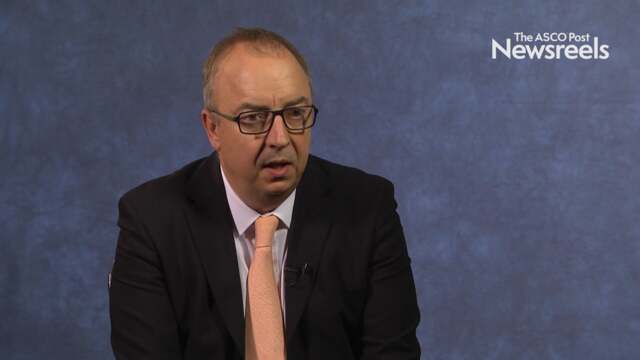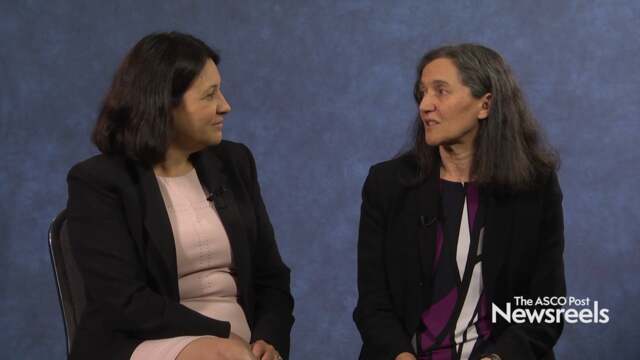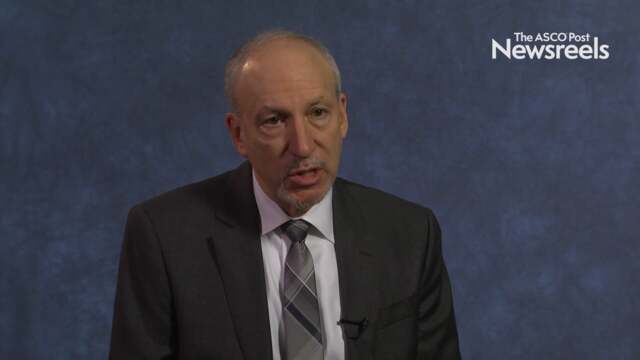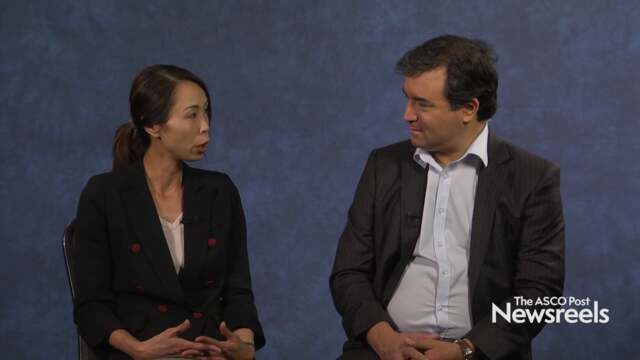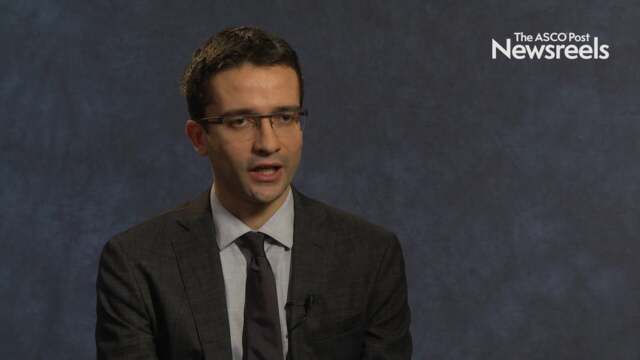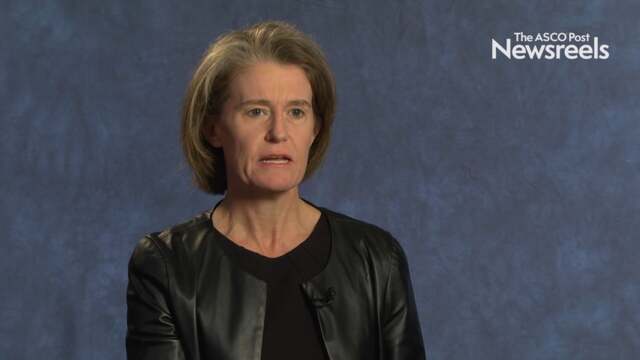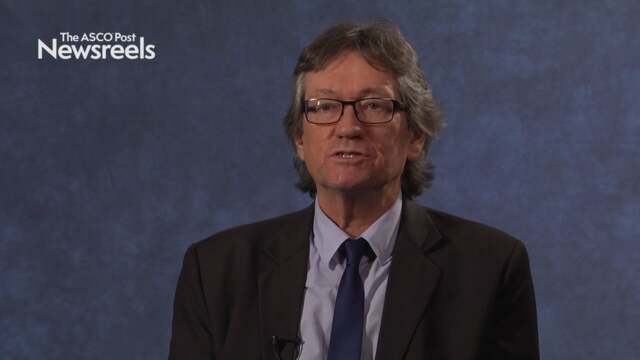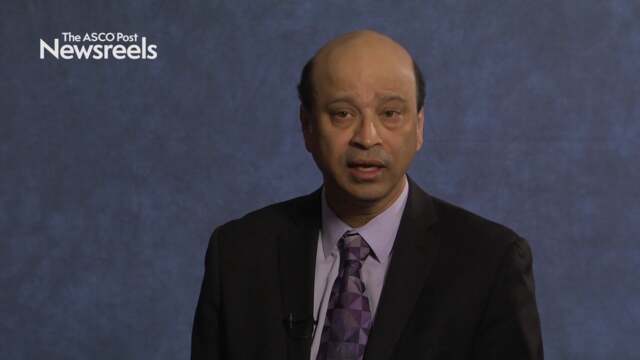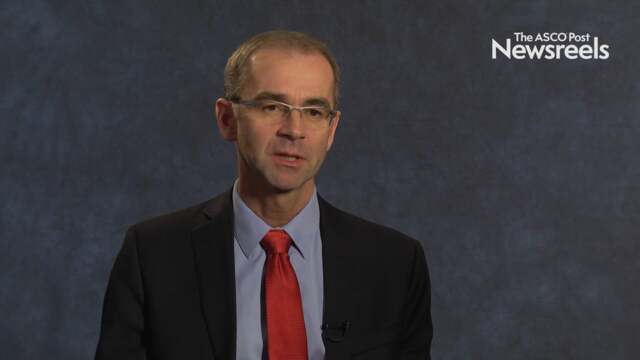FDA Grants Regular Approval to Pertuzumab for Adjuvant Treatment of HER2-Positive Breast Cancer
On December 20, 2017, the U.S. Food and Drug Administration (FDA) granted regular approval to pertuzumab (Perjeta) for use in combination with trastuzumab (Herceptin) and chemotherapy as adjuvant treatment of patients with HER2-positive early breast cancer at high risk of recurrence. APHINITY...
Hormonal Contraception and Breast Cancer Risk
As reported in The New England Journal of Medicine by Mørch et al, a Danish study has shown that the risk of breast cancer is increased in hormonal contraception users vs nonusers, with the absolute increase in risk being small. Study Details The study assessed the association between the...
BELLE-3 Trial: Combination Therapy in Resistant Advanced Breast Cancer
The phase III BELLE-3 trial has shown prolonged progression-free survival but a worse safety profile with the addition of the pan-phosphoinositide 3-kinase inhibitor buparlisib to fulvestrant (Faslodex) in postmenopausal women with hormone receptor–positive, HER2-negative advanced breast...
Eric S. Winer, MD, on Metastatic Breast Cancer: Debate on a Research Tool
Eric S. Winer, MD, of the Dana-Farber Cancer Institute, addresses the much-discussed controversy over whether all women diagnosed with metastatic breast cancer should undergo next-generation sequencing.
Sibylle Loibl, MD, PhD, on Metastatic Breast Cancer: the PADMA Trial
Sibylle Loibl, MD, PhD, of the German Breast Group, discusses a study evaluating palbociclib plus endocrine treatment vs a chemotherapy-based treatment strategy in patients with hormone receptor–positive, HER2-negative metastatic breast cancer (Abstract OT3-05-04).
Rowan T. Chlebowski, MD, PhD, on Weight Loss and Breast Cancer Risk: Results From the Women’s Health Initiative
Rowan T. Chlebowski, MD, PhD, of the City of Hope National Medical Center, discusses 11-year followup results that showed a significantly lower breast cancer incidence among women with a greater than 5% weight loss (Abstract GS5-07).
Nicholas C. Turner, MD, PhD, on Tackling Breast Cancer Diversity
Nicholas C. Turner, MD, PhD, of The Royal Marsden Hospital NHS Trust, discusses the challenges of treating metastatic breast cancer and how liquid biopsies can serve as a guide to genetic phenotypes.
Joseph A. Sparano, MD, on Stage II–III Breast Cancer and CTCs
Joseph A. Sparano, MD, of Montefiore Medical Center/Albert Einstein College of Medicine, discusses findings that suggest circulating tumor cells 5 years after diagnosis are prognostic for late recurrence in operable stage II–III breast cancer (Abstract GS6-03).
Eun-Sil Shelley Hwang, MD, on DCIS: Results of the CALGB 40903 Trial
Eun-Sil Shelley Hwang, MD, of Duke University Medical Center, discusses study findings on primary endocrine therapy for estrogen receptor–positive ductal carcinoma in situ (Abstract GS5-05).
Lynn J. Howie, MD, on ER+ Metastatic Breast Cancer: An FDA Treatment Analysis
Lynn J. Howie, MD, of the U. S. Food & Drug Administration, discusses a pooled analysis of outcomes of older women with hormone receptor–positive metastatic breast cancer treated with a CDK4/6 inhibitor as initial endocrine-based therapy (Abstract GS5-06).
SABCS 2017: Older Women With Hormone Receptor–Positive Breast Cancer May Receive Similar Benefit From CDK4/6 Inhibitors as Younger Women
Older women with hormone receptor–positive, HER2-negative metastatic breast cancer who were treated with cyclin-dependent kinase (CDK) 4/6 inhibitors achieved progression-free survival at a rate similar to that of younger women, according to data presented by Singh et al at the 2017 San...
SABCS 2017: Postmenopausal Women Who Lose Weight May Have Reduced Breast Cancer Risk
Postmenopausal women who lose weight may have a significantly reduced chance of developing breast cancer, according to data presented by Chlebowski et al at the 2017 San Antonio Breast Cancer Symposium (Abstract GS5-07). “Breast cancer is among the leading types of cancer and...
SABCS 2017: Circulating Tumor Cells May Predict Late Recurrence in Patients With Hormone Receptor–Positive Breast Cancer
Among patients with hormone receptor–positive HER2-negative stage II–III breast cancer without clinical evidence of recurrence, those who had circulating tumor cells (CTCs) detected in blood 5 years after diagnosis had an increased risk for late recurrence of breast cancer, according to ...
SABCS 2017: Phase III EMBRACA Trial Meets Primary Endpoint
Patients with advanced HER2-negative breast cancer with germline BRCA mutations had significantly prolonged progression-free survival when treated with the poly(ADP-ribose) polymerase (PARP) inhibitor talazoparib, compared with those who received chemotherapy of physician’s choice, according...
FDA Approves First Biosimilar for the Treatment of Certain Breast and Stomach Cancers
On December 1, 2017, the U.S. Food and Drug Administration (FDA) approved trastuzumab-dkst (Ogivri) as a biosimilar to trastuzumab (Herceptin) for the treatment of patients with breast or metastatic gastric or gastroesophageal junction adenocarcinoma whose tumors overexpress the HER2 gene. The...
AKT Inhibitor Ipatasertib in Metastatic Triple-Negative Breast Cancer
The randomized phase II LOTUS trial has shown improved progression-free survival with the addition of the AKT inhibitor ipatasertib to paclitaxel in the first-line treatment of metastatic triple-negative breast cancer. These results were reported by Sung-Bae Kim, MD, of the University of Ulsan...
Partial-Breast and Reduced-Dose Radiotherapy After Breast-Conserving Surgery
The UK IMPORT LOW phase III trial has shown noninferiority in local relapse for partial-breast and reduced-dose vs standard whole-breast radiotherapy after breast-conserving surgery in early breast cancer. These study results were reported by Charlotte E. Coles, PhD, of the University of...
Genomic Characteristics and Immune Infiltration in Triple-Negative Breast Cancer
In a study reported in JAMA Oncology, Thomas Karn, PhD, of Goethe-University Frankfurt, and colleagues found that triple-negative breast cancers with high immune gene expression levels were characterized by lower clonal heterogeneity, reduced copy number alterations, and lower somatic mutation,...
SABCS 2017: Combined Residual Risk Score Test and Predicting Breast Cancer Risk in Women Who Tested Negative for Hereditary Mutations
Results from a validation study to better define the risk of breast cancer in women of European ancestry who tested negative for a hereditary cancer mutation with a hereditary cancer risk test (myRisk Hereditary Cancer test) were reported earlier this week in a spotlight presentation at the 2017...
NCCN Awards Nine Grants for Quality Improvement in Breast Cancer Care
The National Comprehensive Cancer Network® (NCCN®) Oncology Research Program in collaboration with Pfizer Global Medical Grants announced they have awarded funding to nine projects that use clinical care pathways to implement quality-improvement initiatives along the continuum of care for...
SABCS 2017: 2 Years of Extended Anastrozole Therapy Proved as Effective as 5 Years in Hormone Receptor–Positive Breast Cancer
Postmenopausal women with hormone receptor–positive breast cancer who took the aromatase inhibitor anastrozole for 2 years after an initial 5 years of adjuvant endocrine therapy received an equal benefit to those who took the drug for 5 additional years. The trial results suggest that a...
SABCS 2017: SOLD Trial Data Support Current Standard 12-Month Adjuvant Trastuzumab for HER2-Positive Breast Cancer
Disease-free survival after 9 weeks of adjuvant trastuzumab (Herceptin) and standard chemotherapy was not comparable to disease-free survival after 12 months of adjuvant trastuzumab and standard chemotherapy for women with early-stage HER2-positive breast cancer, supporting the current...
Harold J. Burstein, MD, PhD, on HR+ Early Breast Cancer: Update of the SOFT Trial
Harold J. Burstein, MD, PhD, of the Dana-Farber Cancer Institute, discusses study findings on a comparison of adjuvant tamoxifen plus ovarian function suppression vs tamoxifen in premenopausal women with hormone receptor–positive breast cancer (Abstract GS4-03).
Melinda Telli, MD, on Triple-Negative Breast Cancer: New Clinical Approaches
Melinda Telli, MD, of the Stanford University School of Medicine, discusses the current status of treatment for advanced TNBC, and new therapeutic strategies now being used for better outcomes.
Lisa A. Carey, MD, on Locally Recurrent or Metastatic Breast Cancer: Results of a CALGB/NCCTG Trial
Lisa A. Carey, MD, of the University of North Carolina, discusses the long-term follow-up of CALGB 40502/NCCTG N063H, a phase III study of weekly paclitaxel compared with weekly nanoparticle albumin bound nab-paclitaxel or ixabepilone with or without bevacizumab as first-line therapy for locally recurrent or metastatic breast cancer (Abstract GS3-06).
Michael Gnant, MD, on Duration of Anastrozole Treatment: Results of the ABCSG-16 Trial
Michael Gnant, MD, of the Medical University of Vienna, discusses phase III study findings on giving an additional 2 vs an additional 5 years of anastrozole after the first 5 years of adjuvant endocrine therapy (Abstract GS3-01).
Vered Stearns, MD, and Prudence A. Francis, MD, on ER+ Breast Cancer: Controversies in Adjuvant Treatment
Vered Stearns, MD, of Johns Hopkins University, and Prudence A. Francis, MD, of the Peter MacCallum Cancer Centre, discuss two key topics in adjuvant treatment: endocrine therapy for premenopausal women with ER+ breast cancer and finding the optimal duration of treatment.
National Cancer Institute Awards $12 Million for Breast Cancer Genetics Study
A large study headed by researchers at the Keck School of Medicine of the University of Southern California and two other institutions received $12 million in funding to examine why African American women seem to have more aggressive breast tumors and higher mortality rates from breast cancer than...
Lee S. Schwartzberg, MD, on HR+ Breast Cancer: Treatment Trial Results
Lee S. Schwartzberg, MD, of the West Cancer Center, discusses phase II study findings evaluating exemestane with or without enzalutamide in patients with hormone receptor–positive breast cancer (Abstract GS4-07).
Sherene Loi, MD, PhD, and Roberto Salgado, MD, PhD, on HER2+ Metastatic Breast Cancer: Results From the PANACEA/KEYNOTE 014 Trial
Sherene Loi, MD, PhD, and Roberto Salgado, MD, PhD, both of the Peter MacCallum Cancer Centre, discuss study findings on pembrolizumab and trastuzumab in patients with trastuzumab-resistant disease (Abstract GS2-06).
Preparing for Steep Increase in Breast Cancer Among the Elderly
“We are in the midst of a steep increase” in the incidence of breast cancer among women aged 65 years and older, Arti Hurria, MD, reported at the 19th Annual Lynn Sage Breast Cancer Symposium, Chicago.1 “Are we prepared as a health-care system and as providers to address this burgeoning need?” she...
Combined Therapies Increase Adverse Events in Patients With Hormone Receptor–Positive Metastatic Breast Cancer
In patients with hormone receptor–positive metastatic breast cancer, the combination of targeted agents and hormone therapy is associated with a significantly increased risk of severe adverse events, according to research presented by Matteo Lambertini, MD, European Society for Medical Oncology...
Managing Neurotoxicity in Advanced Breast Cancer
Neurotoxicity in advanced breast cancer is not limited to chemotherapy-induced peripheral neuropathy, according to Matti Aapro, MD, of IMO Clinique de Genolier, Switzerland. Surgery, radiation therapy, and medical therapy can all have detrimental effects on either the central or peripheral nervous ...
Matteo Lambertini, MD, on Preserving Fertility in Patients With Early Breast Cancer: Pooled Analysis
Matteo Lambertini, MD, of the Institut Jules Bordet, discusses the results of five clinical trials investigating temporary ovarian suppression with gonadotropin-releasing hormone analogs during chemotherapy as a strategy to preserve ovarian function and fertility in premenopausal early breast cancer patients (Abstract GS4-01).
Elizabeth A. Mittendorf, MD, PhD, on Immunotherapy in Breast Cancer: Expert Perspective
Elizabeth A. Mittendorf, MD, PhD, of The University of Texas MD Anderson Cancer Center, discusses the growing role of immunotherapy in treating breast disease, the evidence of biomarkers that may be associated with response to therapy, and the opportunities to perform robust correlative studies.
SABCS 2017: Temporary Ovarian Suppression With Hormone Analog May Preserve Fertility During Breast Cancer Chemotherapy
Meta-analysis of individual patient data from five randomized clinical trials provided a high level of evidence that treatment with a gonadotropin-releasing hormone analog (GnRHa) could safely and effectively protect ovarian function and potentially preserve fertility in premenopausal women...
SABCS 2017: Acupuncture May Reduce Joint Pain Caused by Aromatase Inhibitor Treatment
Acupuncture significantly reduced joint pain for postmenopausal women with early-stage breast cancer receiving treatment with an aromatase inhibitor compared with both sham acupuncture and no treatment, according to data from the randomized, phase III SWOG S1200 trial presented by Hershman et al at ...
SABCS 2017: MONALEESA-7: Ribociclib Improved Progression-Free Survival for Pre- and Perimenopausal Women With HR-Positive Advanced Breast Cancer
Adding the cyclin-dependent kinase (CDK) 4/6 inhibitor ribociclib (Kisqali) to standard endocrine therapy with temporary ovarian suppression significantly improved progression-free survival for pre- and perimenopausal women with advanced hormone receptor–positive (HR-positive), HER2-negative...
SABCS 2017: Combination of Pembrolizumab and Trastuzumab Shows Early Promise for Patients With Trastuzumab-Resistant Breast Cancer
A combination of pembrolizumab (Keytruda) and trastuzumab (Herceptin) tested in patients with trastuzumab-resistant advanced HER2-positive breast cancer was well tolerated and had clinical benefit in patients whose tumors were positive for a biomarker for pembrolizumab, according to data presented...
Richard G. Gray, MSc, on Adjusting Adjuvant Chemotherapy Dosing: Results From an EBCTCG Analysis
Richard G. Gray, MSc, of the University of Oxford, discusses an Early Breast Cancer Trialists’ Collaborative Group meta-analysis of 21,000 women in 16 randomized trials, which showed that increasing the dose density of adjuvant chemotherapy by shortening intervals between courses or sequentially administering treatment significantly reduces disease recurrence and breast cancer mortality (Abstract GS1-01).
Louis Fehrenbacher, MD, on Invasive Breast Cancer: Results From the NSABP B-47 Trial
Louis Fehrenbacher, MD, of Kaiser Permanente, discusses study findings comparing adjuvant chemotherapy with doxorubicin and cyclophosphamide followed by weekly paclitaxel—or docetaxel and cyclophosphamide—with or without a year of trastuzumab in women with node-positive or high-risk node-negative disease (Abstract GS1-02).
Debu Tripathy, MD, on HR+, HER2– Breast Cancer: Results From the MONALEESA-7 Trial
Debu Tripathy, MD, of The University of Texas MD Anderson Cancer Center, discusses phase III study findings on first-line ribociclib vs placebo with goserelin and tamoxifen or a nonsteroidal aromatase inhibitor in premenopausal women with hormone receptor–positive, HER2-negative advanced breast cancer (Abstract GS2-05).
Wolfgang Janni, MD, PhD, on Early Breast Cancer and Bisphosphonate Treatment: Results From the SUCCESS A Trial
Wolfgang Janni, MD, PhD, of Ulm University, discusses study findings that showed extended adjuvant bisphosphonate treatment over 5 years in early breast cancer does not improve disease-free and overall survival when compared with 2 years of treatment (Abstract GS1-06).
Keynote Lecture: Silvia C. Formenti, MD, on Converting Tumors Into in Situ Vaccines With Radiation Therapy
Silvia C. Formenti, MD, of Weill Cornell Medicine, discusses the high therapeutic potential of combining radiotherapy with immunotherapy and findings that show radiation dose and fractionation seem particularly relevant to the success of abscopal responses. The science has now matured to clinical translation.
SABCS 2017: Increasing the Dose Intensity of Chemotherapy May Lower the Risk of Breast Cancer Recurrence and Death
Increasing the dose intensity of chemotherapy—by either shortening the intervals between the cycles or by sequential administration instead of concurrent administration of the drugs—reduced the risk of early-stage breast cancer recurrence and death compared with standard chemotherapy...
SABCS 2017: Adjuvant Trastuzumab Did Not Improve Outcomes for Patients With HER2-Low Breast Cancer
Adding trastuzumab (Herceptin) to standard adjuvant chemotherapy did not improve invasive disease–free survival for patients with early-stage breast cancer found to have low levels of HER2, defined as immunohistochemistry (IHC) 1–positive or IHC 2-positive and/or in situ hybridization...
Neoadjuvant Regimens Compared in HER2-Positive Breast Cancer
The phase III KRISTINE trial has shown that neoadjuvant therapy with docetaxel, carboplatin, and trastuzumab (Herceptin) plus pertuzumab (Perjeta) resulted in a higher pathologic complete response rate vs ado-trastuzumab emtansine (Kadcyla) plus pertuzumab, as well as a higher incidence of severe...
Extended Intermittent vs Continuous Adjuvant Therapy for Postmenopausal Women With Breast Cancer
The phase III SOLE trial has shown no disease-free survival benefit with extended intermittent vs continuous adjuvant letrozole in postmenopausal women with breast cancer. These findings were reported by Colleoni et al in The Lancet Oncology. As noted by the investigators, the findings suggest an...
Urban American Indian and Alaskan Natives May Have Lower Survival Rates Following Invasive Prostate and Breast Cancers
Compared with the non-Hispanic white (NHW) population, the urban American Indian and Alaskan Native (AIAN) community was more likely to have lower survival rates following invasive prostate and breast cancer, according to a new study by Emerson et al in Cancer Research. “It’s been...
Climbing Costs for Treating Breast Cancer Poised to Strain Medicare in the Near Future
With cancer care costs projected to increase 32% from 2010 to 2020, researchers are working to determine the main drivers of costs for treating breast cancer. In a study led by Ami Vyas, PhD, MS, MBA, of the University of Rhode Island, published in the November issue of JNCCN–Journal of the...
